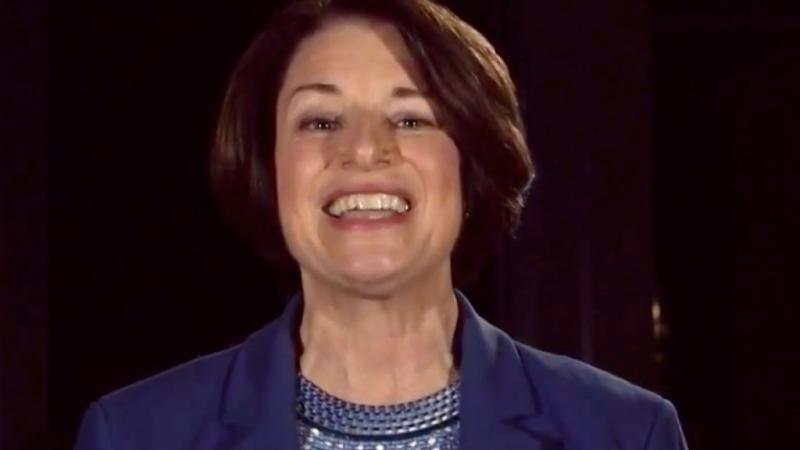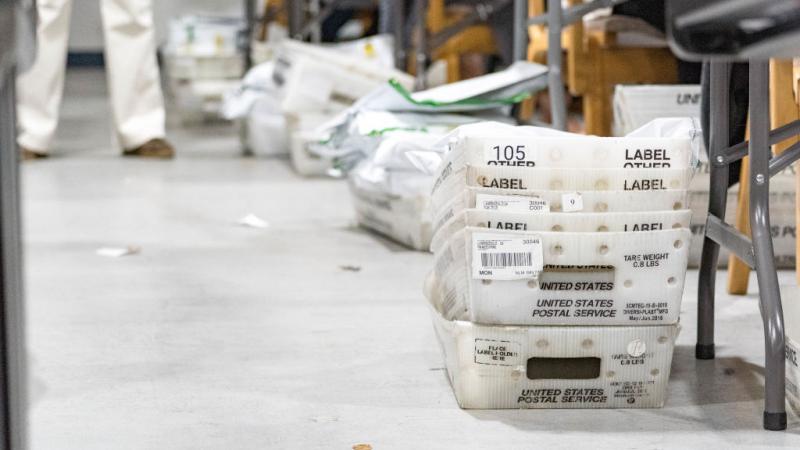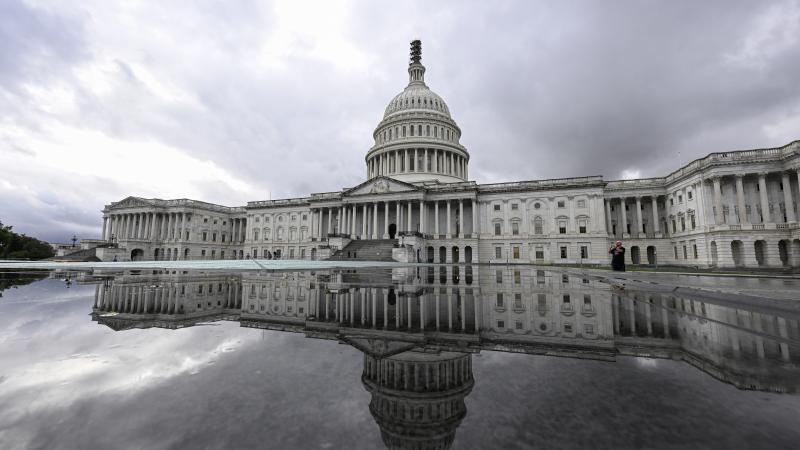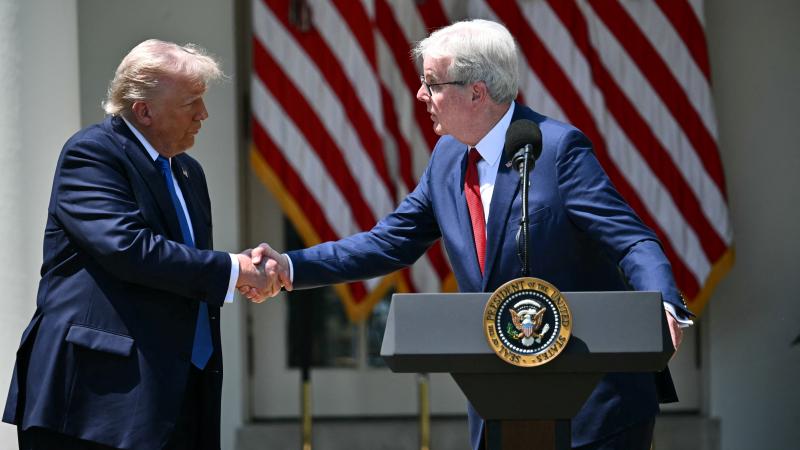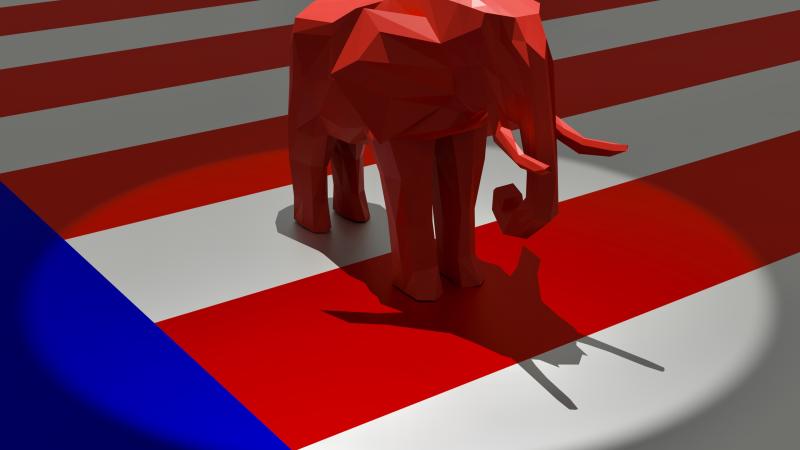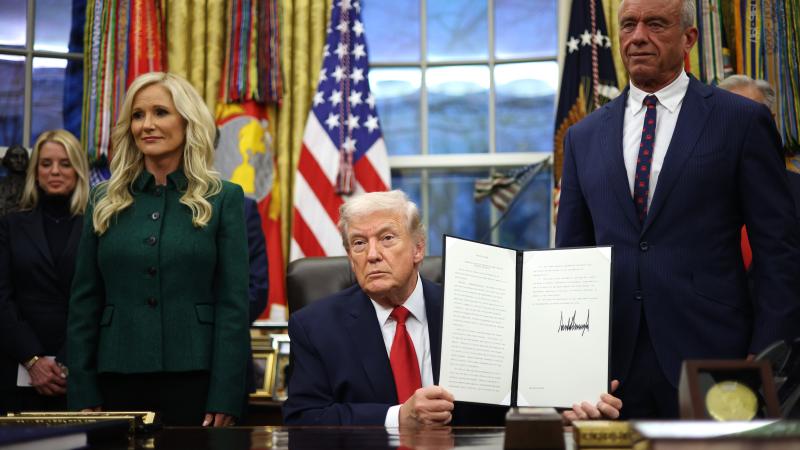House investigating whether foreign money flowing into Democrat coffers
Rep. Bryan Steil says he has identified two loopholes use by ActBlue donations and “my concern is that individuals are outside the jurisdiction in the United States who may be engaged in this.”
The chairman of the powerful House Administration Committee says his investigation into one of the Democrats' most successful political action committees has pivoted to whether foreigners may be laundering money into the 2024 election.
Rep. Bryan Steil, W-Wis., said his committee has identified individuals who claim they did not make the donations attributed to them in Federal Election Commission (FEC) reports filed by ActBlue. His committee, which oversees election integrity issues, has “activated a full investigation.”
“My concern is that individuals are outside the jurisdiction in the United States who may be engaged in this,” Steil told the "Just the News, No Noise" television show.
“We need to make sure that we're avoiding, in particular, foreign interference in American elections in a period of time when the Biden administration and radical Democrats are happy to do the opposite,” he added.
The Democratic Party has a long history of scandal when it comes to illegal foreign donations. During Bill Clinton’s 1996 re-election campaign, the Democrats were caught accepting hundreds of thousands of donations from suspect or “straw donors” who were reimbursed by foreigners tied to China, prompting one of the biggest scandals of the last half century.
Hillary Clinton’s presidential campaign got a black eye for similar problems when an Indian-American fund-raiser pleaded guilty to funneling straw donations to her 2008 campaign.
Fast forward to 2024, and Congress and the attorneys general of Texas, Missouri and Virginia have opened investigations into ActBlue after multiple reports of people claiming they did not make contributions attributed to them.
ActBlue is one of the Democrats’ most prolific digital fundraising platforms, reporting a total of $493 million in donations raised in July alone. It focuses on small-dollar donors and did not respond to a request from Just the News for comment. However, it has long called allegations against it "dubious" and vowed to cooperate with various investigations to clear its name.
"This investigation is nothing more than a partisan political attack and scare tactic to undermine the power of Democratic and progressive small-dollar donors. We welcome the opportunity to respond to these frivolous claims," ActBlue wrote in a statement after Virginia Attorney General Jason Miyares announced an inquiry this month.
Rep. Steil wrote to the Federal Election Commission last week asking it to impose emergency rules that would bolster donor verification and prevent cheating by anonymous donors who place their cash in the names of others.
“Following widespread allegations of fraudulent donations being reported to the FEC by ActBlue, one of the largest fundraising platforms in the country, this emergency rule-making is necessary to reassure the American people that ActBlue is taking the necessary steps to protect its donors,” Steil told the FEC.
Steil told Just the News that he wants two “loopholes” closed that could explain the concerns his committee has identified: the use of anonymous gift cards to make political contributions and the failure of PACs like ActBlue to require Card Verification Value (CVV) numbers when processing donations.
“We continue to get evidence that individuals have come forward and are noting that there are donations in their name that they did not make,” he said. “I'm of the belief that these loopholes that we've identified might be the culprit.
“The easy answer here is for the FEC to take emergency action and ban the use of anonymous gift cards in any online donation to any politician across the board, and it's the concern that we have with ActBlue, with their weak protocols, as relates to not using a CVV number and allowing these anonymous gift cards.”
Sen. Marco Rubio, R-Fla., has also pressed election regulators to require the CVV number in all transactions, saying he had learned that “alarming reports emerged of fraudulent donations being reported to the FEC by ActBlue.”
Late last week, Texas Attorney General Ken Paxton announced that his investigation into ActBlue has resulted in a change: the Democrat-affiliated PAC now requires CVV codes as a security measure when people make donations.
The political action committee fundraises for Democratic nonprofits and politicians.
"ActBlue has cooperated with our ongoing investigation," Paxton wrote Thursday on the social media platform X. "They have changed their requirements to now include ‘CVV’ codes for donations on their platform. This is a critical change that can help prevent fraudulent donations."
In December of 2023, Paxton opened up an investigation to ActBlue after alleging that the organization was conducting fraudulent activity regarding donations.
The FEC has declined to take any specific actions, but warned last year that it receives numerous complaints from donors who claim they did not believe they had authorized recurring donations on their credit cards from digital fundraising platforms. It urged Congress to pass new laws to stop such practices.
“Commission staff are regularly contacted by individuals who have discovered recurring contributions to political committees have been charged to their credit card accounts or deducted from their checking accounts. In many cases, the contributors do not recall authorizing recurring contributions,” the FEC wrote Congress in December.
“Often, these contributors have attempted unsuccessfully to cancel the recurring transactions with the political committee prior to contacting FEC staff. Some fundraising devices use “pre-checked boxes” to treat a one-time contribution as a recurring contribution,” it added. “In this way, some committees consider the contributor to have authorized the recurring contributions without obtaining the contributors’ affirmative consent. The Commission’s experience strongly suggests that many contributors are unaware of the “prechecked boxes” and are surprised by the already completed transactions appearing on account statements.”
You can read that letter here.
File
Steil said his biggest concern is closing any back door where foreign money can come into influence U.S. elections.
“The real big concern here is that because these donations are made online, they could be coming from anywhere across the globe. Gone are the days where individuals would engage in illegal behavior with cash. Now we can do this online,” he said.
The Facts Inside Our Reporter's Notebook
Documents
File
Links
- House Administration Committee
- accepting hundreds of thousands of donations from suspect or âstraw donorsâ
- Indian-American fund-raiser pleaded guilty to funneling straw donations
- Texas
- Virginia
- ActBlue
- multiple reports
- reporting a total of $493 million in donations
- ActBlue wrote in a statement
- Steil told the FEC
- Texas Attorney General Ken Paxton announced
- pressed election regulators
- social media platform X
- FEC wrote Congress

